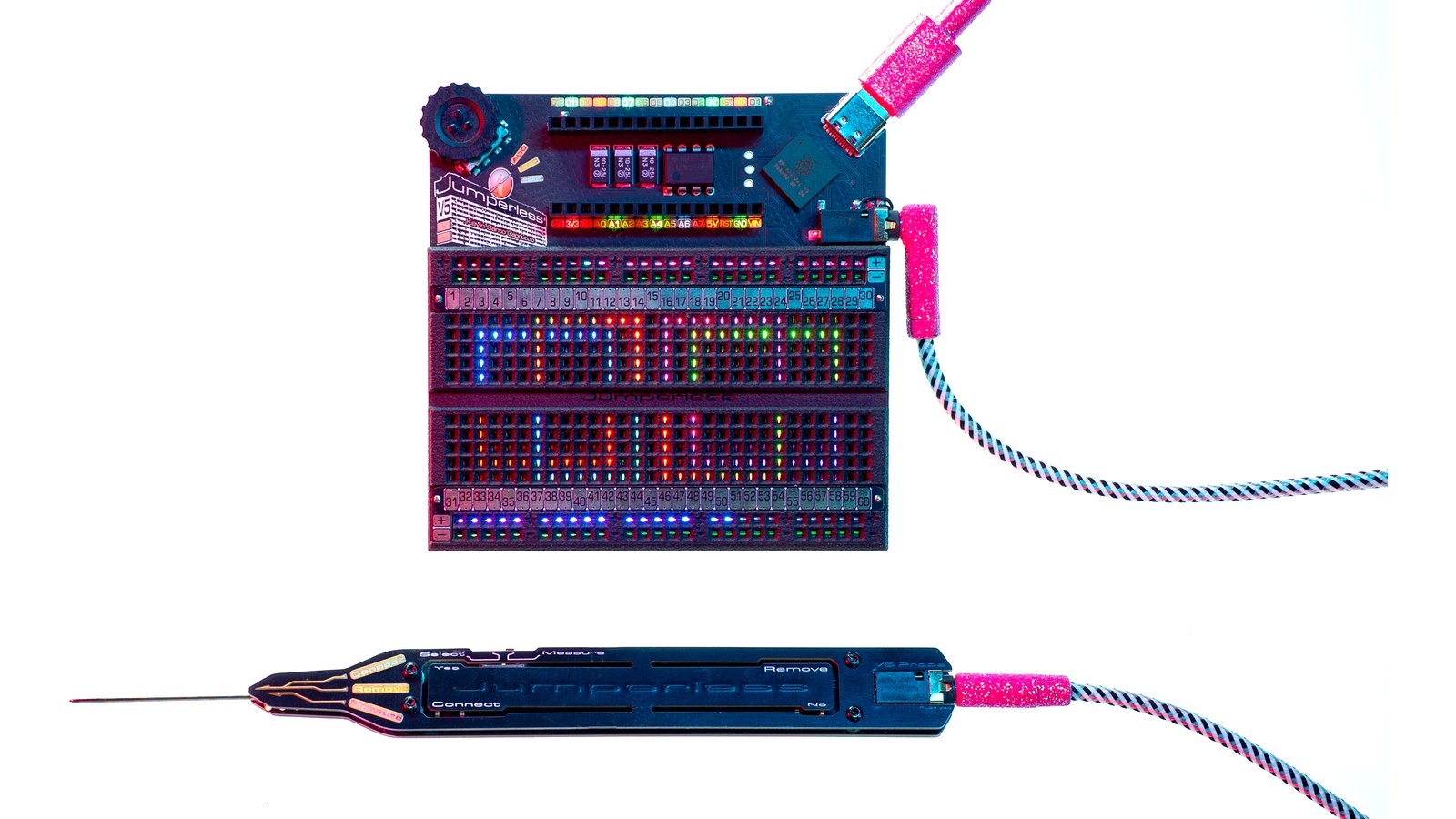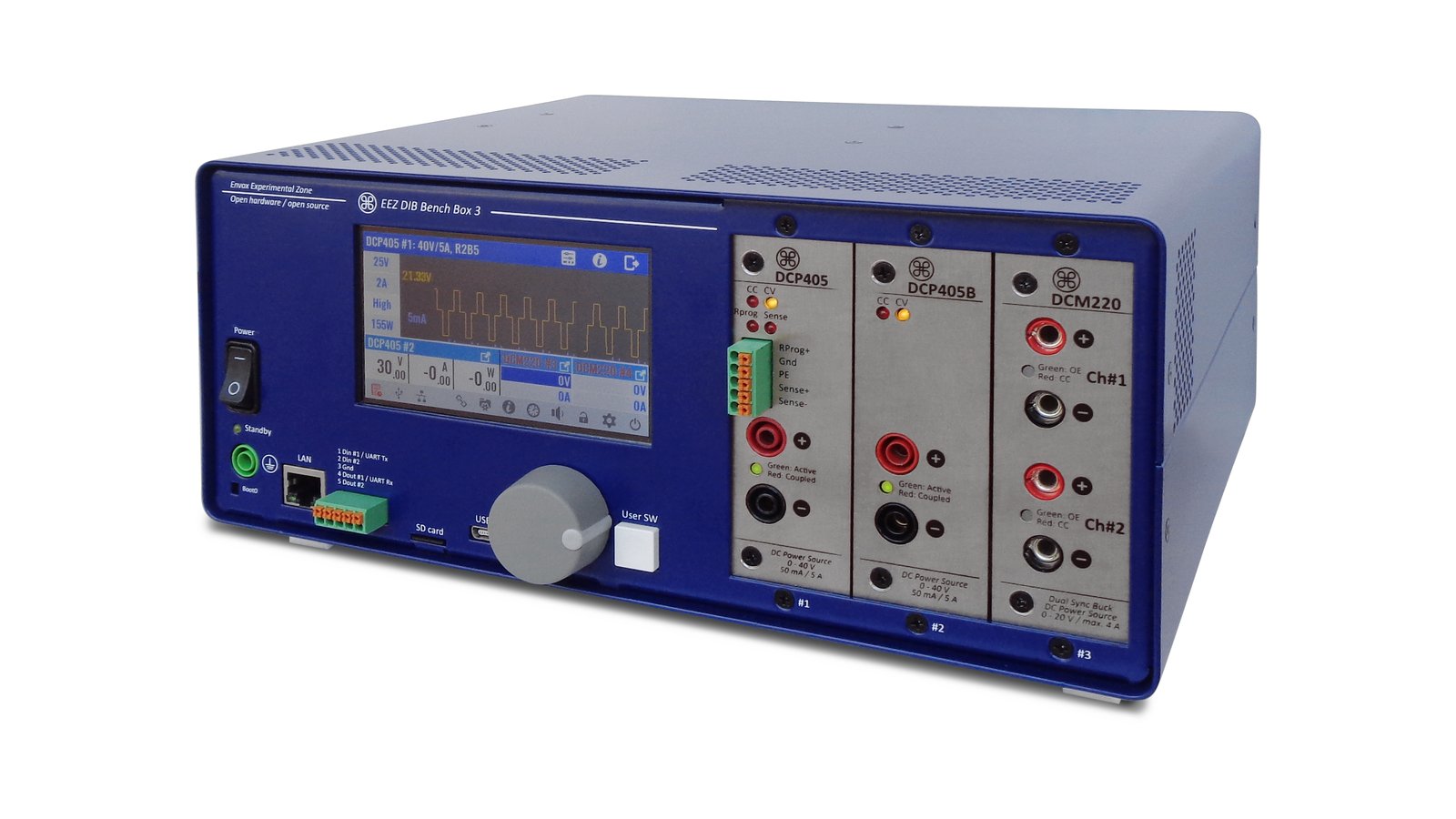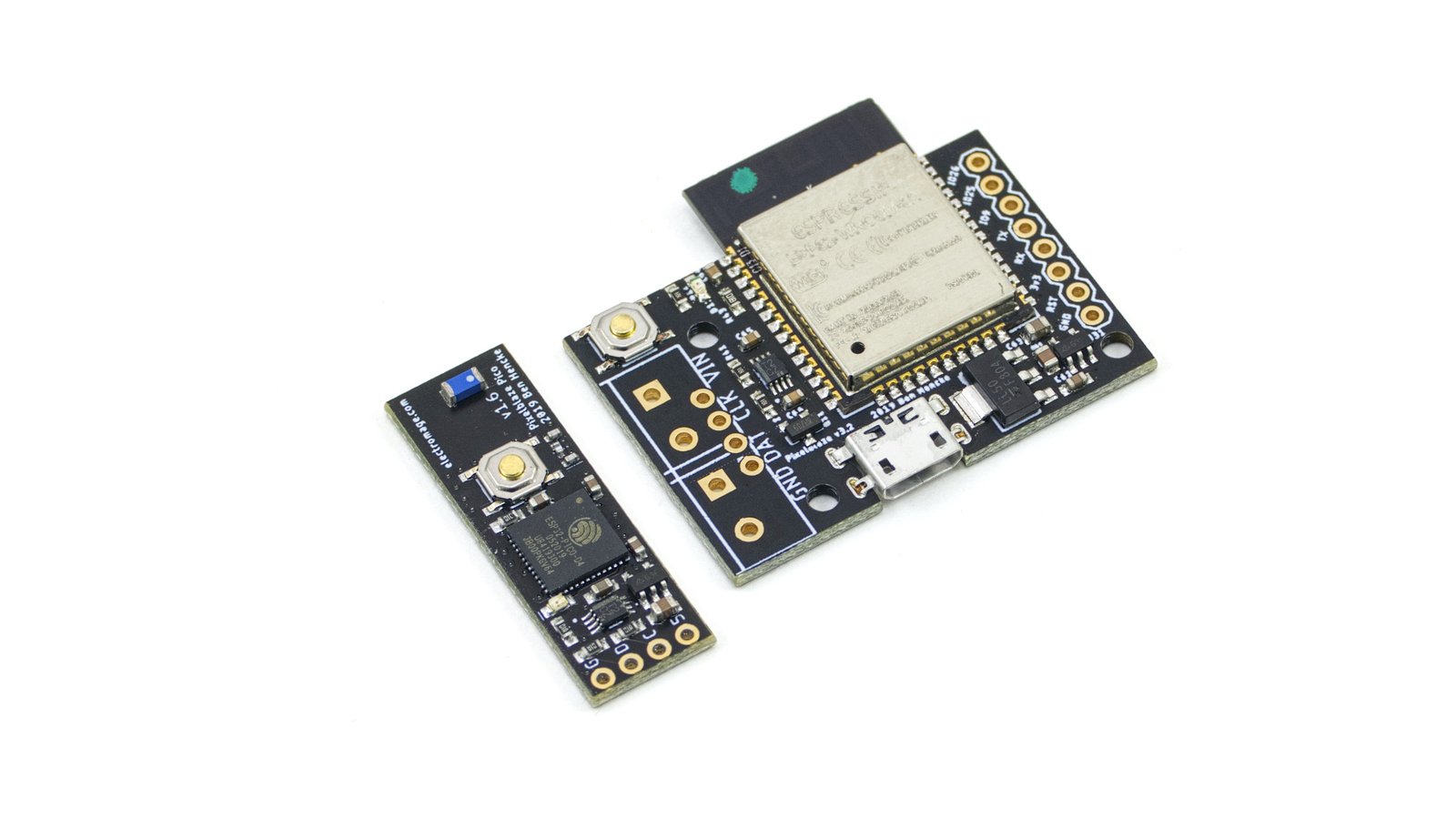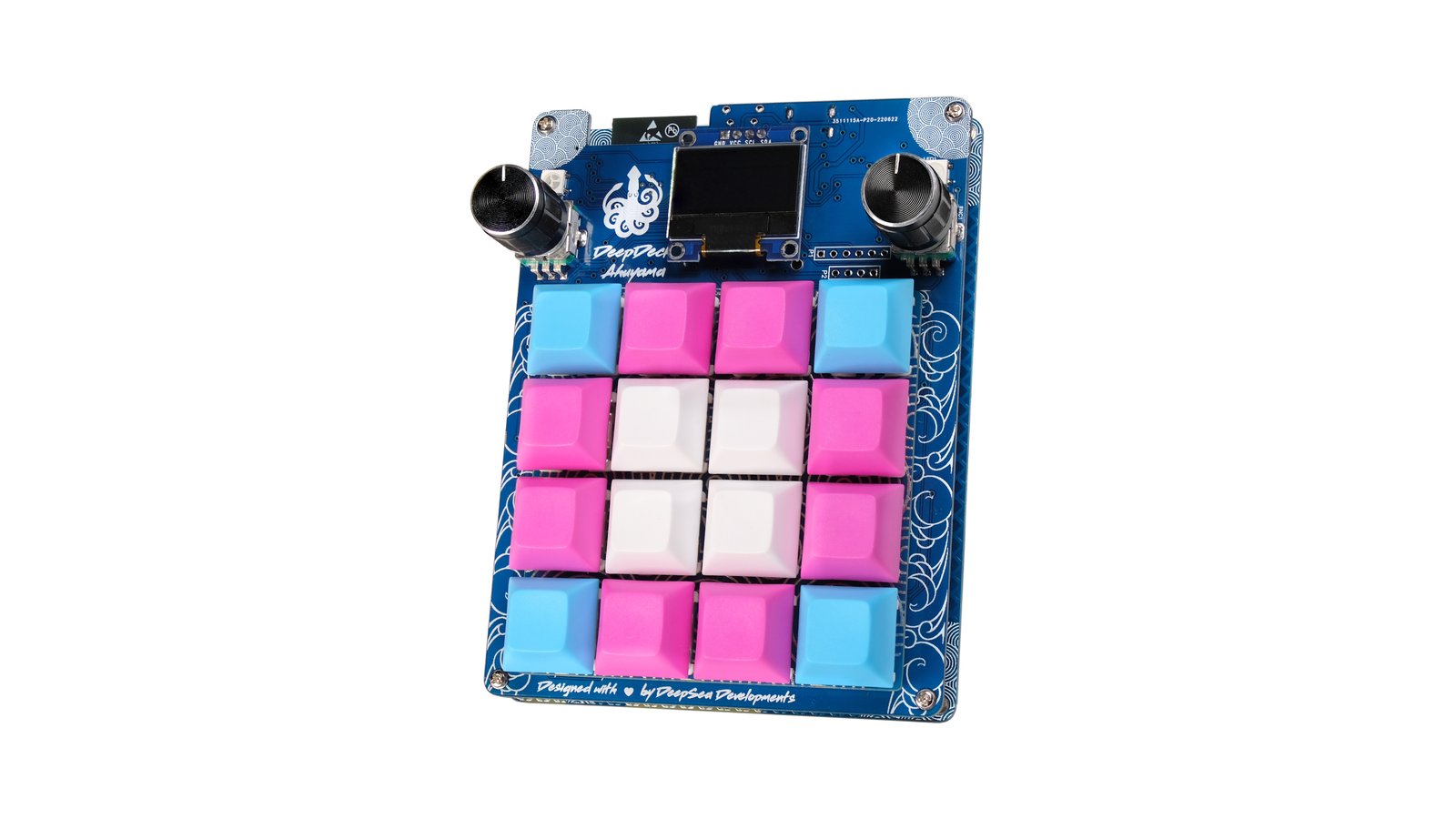Architeuthis Flux
Test Equipment
LEDs
Jumperless V5
The next generation jumperless breadboard
Funding ended on Nov 07, 2024 at 03:59 PM PST.
Architeuthis Flux
Test Equipment
LEDs
Funding ended on Nov 07, 2024 at 03:59 PM PST.
Jumperless V5 lets you prototype like a nerdy wizard who can see electricity and conjure jumpers with a magic wand. It’s an Integrated Development Environment (IDE) for hardware, with an analog-by-nature RP2350B-based dev board, a drawer full of wires, and a workbench full of test equipment (including a power supply, a multimeter, an oscilloscope, a function generator, and a logic analyzer) all crammed inside a breadboard.
You can connect any point to any other using software-defined jumpers, so the four individually programmable ±8 V power supplies; ten GPIOs; and seven management channels for voltage, current, and resistance can all be connected anywhere on the breadboard or the Arduino Nano header. RGB LEDs under each hole turn the breadboard itself into a display that provides real-time information about whatever’s happening in your circuit.
It’s intuitive enough that it becomes "just part of your brain," the same way your computer does. You’ll quickly forget this isn’t how prototyping has always been.
Oh yeah, and it runs on the brand spankin’ new RP2350B!
V5 is a significant redesign of the original Jumperless. Having a few hundred people out there using Jumperless, sharing ideas, and writing their own apps gave us a list of things to improve and inspired us to make getting a circuit from your brain into hardware feel even more like actual magic.
Once the fundamentals were battle tested, we were able to add some even crazier new stuff like:
Jumperless V5 was designed to work even without a computer. Anything you could do over the serial terminal interface can be done on the board itself, using the clickwheel, probe, and LEDs under the breadboard. All your projects are saved as human-readable text files, on its 16 MB of built-in flash storage, so you can always just plug it in and pick up where you left off.
What’s the fun of having software-defined jumpers if we’re just gonna use them like regular meatspace wires? The power of the shiny new RP2350B means all the housekeeping stuff runs on a single core, leaving the other core free to run a Python interpreter with a built-in module to control everything with simple calls.
So you can write programs like:
jumperless.setTopRail(5.00)
jumperless.connect(top_rail, row_3)
jumperless.connect(gnd, row_7)
jumperless.uartSetup('tx':row_5, 'rx':row_6, 'baud':9600)
response = jumperless.uart('Hello')
if response.length() < 1:
jumperless.textOnBreadboard("Tx Rx are swapped... idiot")
jumperless.uartSetup('tx':row_6, 'rx':row_5, 'baud':9600)
while True:
response = jumperless.uart('Hello')
jumperless.textOnBreadboard(response)
Or, for those of you who are more into the analog stuff, you can write a voltage-controlled oscillator as easy as:
while True:
measurement = jumperless.measure(row_10)
jumperless.outputSine(row_20, 'freq': measurement*1000)
jumperless.textOnBreadboard(measurement + "kHz")
Drop those snippets onto your Jumperless V5 over USB (or live code them from Thonny or whatever), and they’ll be stored in your App Library so you can run them whenever you like.
If Arduino-flavored C++ is more your style, Jumperless V5 also accepts commands over its routable UART lines, so you can just plop down any vaguely Nano-shaped board and control your Jumperless with the same API:
Serial.print(jumperless.connect(row_4, row_20));
Or you can send it a whole netlist:
Serial.print("f 5-gnd, 23-adc_1, 4-20, gpio_2-nano_reset, ");
Your App and Project Libraries are accessible through a USB filesystem, so sharing apps and circuits with the community is as simple as dragging and dropping files.
Jumperless V5 can sniff or write any UART, I²C, SPI, or MIDI signals on the board. It can be set to either print whatever it reads on the breadboard LEDs, turning the Jumperless into a serial monitor, or show up as two USB devices on your computer and give you bidirectional communication through that other port.
Jumperless V5 uses a string of 92 precision resistors in a huge voltage divider and an ADC channel to sense which number the probe is poking. The probe has LEDs to show you which mode you’re in, two buttons to change between adding or removing connections, and a switch that turns it into a routable analog IO so you can measure things or quickly inject signals into your circuit.
Finally, should you misplace your probe, its design allows you to plug in any random, 1/8-inch audio cable and poke out connections with the tip.
| Jumperless V5 | OG Jumperless | Sandwizz™ Breadboard | Breadboard + Wires + Power Supply + Multimeter | |
|---|---|---|---|---|
| Manufacturer | Architeuthis Flux | Architeuthis Flux | Microaware® | A bunch of companies |
| Microcontroller | RP2350B | RP2040 | CY8C58LP PSoC | N/A |
| Switching Method | Analog Crossbar Matrix | Analog Crossbar Matrix | PSoC Internal Mux | Jumper wires |
| Resistance | ~ 85 Ω | ~ 85 Ω | ~ 500 Ω | ~ 0 Ω |
| Power Rails | Individually adjustable ±8V 300mA | 3.3V, 5V, ±8V Switch | 2-5V | External |
| Circuit Input | Always-on Probe, Wokwi, Thumbwheel, Terminal, Routable UART, Text file, Python | Scanning Probe, Wokwi, Terminal, Routable UART, Text file | KiCad schematic capture then guided part placement | 🫰 |
| Rewiring Time | < 2 milliseconds | < 2 milliseconds | ~ 1-5 seconds | 5 - 30 minutes |
| Measurement | Voltage, current, resistance, frequency, digital data | Voltage, current, frequency, digital data | Voltage, frequency | Voltage, current, resistance, frequency |
| On-board Display | 451 RGB LEDs (5 per row) | 111 RGBs (1 per row) | None | None |
| Daisy Chaining | 8 HW Analog connections + 4 Data lines + Power | No | 4 Data lines + Power | Yes, with jumper wires |
| Max Voltage | -9V - +9V (with overvoltage protection) | -9V - +9V | 0V - 5V | No Limit (depending on how brave you are) |
| USB Port | Type C | USB Mini ⁹ | USB Micro | N/A |
| Open Source | HW + SW | HW + SW | No | Interestingly, no |
| Price | $349 | $299 | $99-$299 | $5-$500 |
⁹ I would argue that USB Mini is peak USB design, and I will gladly die on that hill.
There is no "prescribed" use case for this thing. Every design decision was geared toward making it as general purpose as possible while keeping it fun and easy to use. Whether you’re a hobbyist, a musician, a student, a hacker, a scientist, a teacher, an engineer, an artist, or someone who just wants to play Doom on a breadboard, Jumperless was made to give you an entirely new tool for turning your ideas into rad stuff.
The breadboard shells come off with just four solder joints, so you can easily customize your Jumperless by swapping out the shell with one printed in your favorite color or material. It also lets you replace any bent spring clips. In practice, this has never been necessary, as these high-quality phosphor bronze clips are amazingly sturdy, but I know this is a concern for folks who are accustomed to using cheap breadboards.
Every single file that goes into this thing is available for your viewing, modifying, and cloning pleasure. I’m here to make awesome hardware, not keep secrets. The schematic, PCB design, firmware, breadboard shell models, spring clip models, and Jumperless app code, are all in the GitHub repo.
Menus are handled on Jumperless itself, so you can control it using terminal emulators like PuTTY, xTerm, Serial, etc. Or you can use the Jumperless desktop app to poll your Wokwi projects for changes and automatically update connections within half a second of clicking save.
You can find our documentation, guides, and example projects here.
If you don’t love your Jumperless V5, we will always accept returns, for a full refund, and repairs will always be free, regardless of the cause.
And if you want to make your own, that’s cool too. Jumperless V5 is designed to be infinitely open source and hackable. And that goes beyond the documentation and design files linked above. It also includes my support, advice, and assistance. Want to manufacture a dozen DIY Jumperless V5s for you and eleven of your friends? Want to improve my design by upgrading that USB Type-C connector to Mini USB? I’m all about it. In fact, feel free to run your design by me so I can double-check everything before you send it off to your CM! I’ll even mail you the custom spring clips.
Elecrow will be handling PCB fabrication and assembly. They have experience from the OG Jumperless, so they know all the tricks. (There were quite a few things we had to figure out. This is a dense board, with five separate PCBs and a lot of weird fabrication steps required to bring them all together.)
The phosphor bronze spring clips are made by Shenzhen Fulimei Technology, and the stamping/forming molds have already been made, fiddled with, and perfected. The breadboard shells are SLS printed in black PA-12 nylon by JLC3DP. Packaging is made by Shenzhen Zhibang Packaging and Printing.
All the parts will be sent to Elecrow for assembly, and finished units will be shipped to Henderson, NV, where I will lovingly pack each one myself. (They could totally do the packing for me, but I want to make sure your Jumperless V5 is absolutely perfect before it goes out to you.)
After our production run is complete, we will package everything up and send it along to Crowd Supply’s fulfillment partner, Mouser Electronics, who will handle distribution to backers worldwide. You can learn more about Crowd Supply’s fulfillment service under Ordering, Paying, and Shipping in their guide.
The RP2350B is brand new, so there could be more silicon errata. Luckily, this is a friggin’ Jumperless. The hardware is the firmware, so that one isn’t an issue. We just check for a lockup by connecting an ADC and briefly short that pin to ground, overpowering the pullup and getting out of that state. There’s always a workaround, here.
Barring some huge global catastrophe, you will get this thing, and it will be awesome.
"When are jumper wires on a breadboard entirely optional? When it’s the latest version of Kevin Santo Cappuccio's Jumperless, which uses a bunch of analog crosspoint switches...to create connections instead of physical wires."
"At first glance, it feels like a joke: if you want to follow the success of the solderless breadboard...you're going to have to remove the jumper wires too. Except nobody told Kevin Santo Cappuccio it was a joke — and the result is the Jumperless."
"It's one of the first things I've seen that uses the RP2350B, one of new variants of the new RaspberryPi Silicon"
Produced by Architeuthis Flux in Henderson, Nevada.
Sold and shipped by Crowd Supply.

Jumperless V5 with probe
Want to buy this item? Check the current project page for the latest information.


Modular, open-source test & measurement chassis

A Wi-Fi-enabled, live-codable LED controller with a web-based development environment

Wireless, fully programmable, open source, ESP32 macropad featuring 16 RGB, mechanical, hot-swappable keys and two RGB rotary encoders